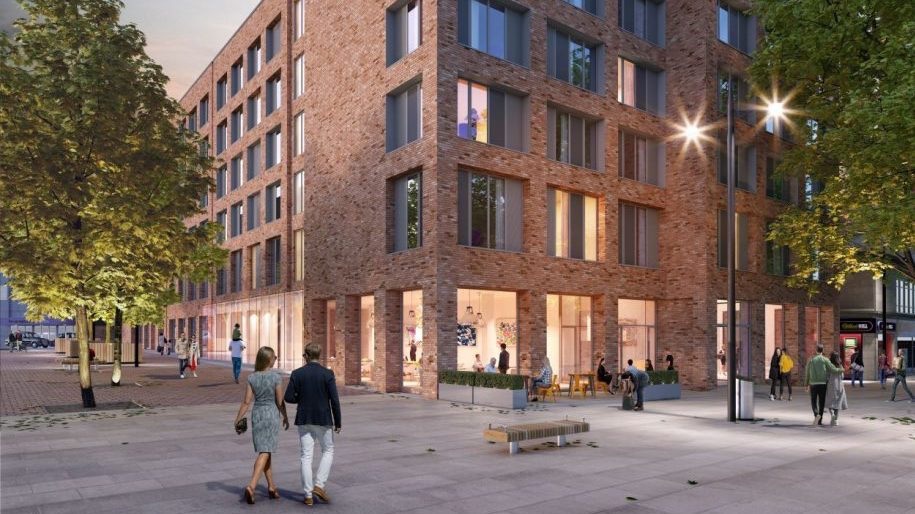Whitbread gains SBTi validation and reinforces commitment to net zero with detailed transition plan

In conjunction with the release of its 2022/23 ESG Report, the owner of Premier Inn provides further details of its step-by-step approach to achieving its net zero goals and announces that its net zero target is now validated by the Science-Based Targets initiative (SBTi)
- Whitbread ambition is to bring directly controlled (Scope 1 and 2) emissions to zero by 2040, removing mains gas connection from existing estate by 2040.
- Company will also achieve 90% reduction in its value chain (Scope 3) emissions by 2050.
- 100% renewable electricity to be purchased across entire Whitbread estate by 2026 where possible.
- First all-electric Premier Inn hotel opening in Swindon later this year.
(London, 01/06/23). Whitbread PLC, the UK’s largest hospitality business and a member of the FTSE100 Index, has today published a comprehensive guide to its long-term decarbonisation plans. The Whitbread Net Zero Transition Plan outlines the Company’s priorities, plans and projects to reach its newly validated SBTi carbon target. It will bring its directly controlled (Scope 1 and 2 emissions) to zero by 2040.
Whitbread also commits to reach net zero greenhouse gas (GHG) emissions across its value chain by FY2050. This includes a reduction in Scope 3 emissions (i.e. those from suppliers and others in the value chain) of over 58%/m2 by FY2030, and 90%/m2 by FY2050*.
It is a level of climate ambition that commits Whitbread to play its part in limiting global warming to 1.5°C with a rigorous, scientific process of validation that sets it apart from its competitors in the budget hotel sector.
Whitbread today confirmed its net zero target has been approved by the authoritative Science Based Targets initiative (SBTi). To achieve SBTi validation, the ambition of the Scope 3 targets is greater than in the published Net Zero Transition Plan, although the actions within the plan remain unchanged and equally valid.
The Plan includes a commitment to remove mains gas from its existing estate where possible, including over 800 Premier Inn hotels, using a wide range of initiatives to embed decarbonisation throughout the business. This includes the installation of Air Source Heat Pumps, solar photovoltaic (PV) panels, only using renewable energy and the installation of more energy efficient kitchen equipment.
These measures will see the firm reach zero GHG emissions by 2040 across its direct operational (Scope 1 and 2) emissions (see glide path in notes to editor). The comprehensive plan also includes its approach to tackling Scope 3 emissions – i.e. those created by suppliers such as food and drink producers.
The plan follows over a decade of activity to drive down emissions, which has seen the Company reduce its direct operational GHG emissions by 52.5% already.
A first major step in the plan will see Whitbread undertake a ‘Net Zero Audit’ of all its sites, so that it can set its priorities for climate retrofitting. This exercise is already being informed by work nearly completed on the Group’ first ‘all-electric’ Premier Inn, due to open its doors in Swindon later this year with no connection to a natural gas supply. The Swindon hotel will be fully heated and powered by renewable electricity (grid and on-site), is built with market-leading insulation standards, energy efficient equipment and new water-heating technology such as the Mitsubishi Q-ton heat pump.
Dominic Paul, Whitbread CEO, said:
“Our Net Zero plan is integral to our business plan. Setting ambitious carbon reduction targets across Whitbread supports our people recruitment and retention, attracts more customers and has a positive impact on our local communities and suppliers.
“We are in a strong position as one of the few hospitality businesses to own its assets to leverage our rate of change and be confident of delivering our low carbon ambitions.”
Rosana Elias, Head of Sustainability, added:
“We have been working on reducing our climate impact for a while and have successfully trialled the installation of air source heat pumps in 40 of our hotels and use solar power across over 20% of our estate. Today’s plan doubles down on our commitment to reinvent budget hotels for the net zero age.
“We have taken a holistic approach – from how we build and operate our buildings and restaurants to how we power them through renewables, and we will work with suppliers, employees and customers to support a just transition. We want to provide sustainable and affordable accommodation and dining options, allowing our guests to make choices that align with their values without having to compromise on the product and service they receive.
“We don’t claim to have all the answers now, but our plan will evolve over time and evolve as the technologies and policies that we rely on for success develop further.”
The Whitbread Net Zero Transition Plan is being driven by the firm’s Force for Good sustainability programme, and its commitments and initiatives include:
- Interim targets by 2030 to reduce Scope 1 and 2 GHG emissions 80% per m2 and Scope 3 emissions by 58% per m2 by 2030 **.
- 100% of new UK self-build developments constructed to net zero specifications from 2026.
- Trial of a shadow cost of carbon in selected investment decisions.
- Entire corporate car fleet in operation to be 100% EV by 2030.
- Working with a specialist food consultancy to measure the impact of embedded soy in Whitbread’s supply chain.









